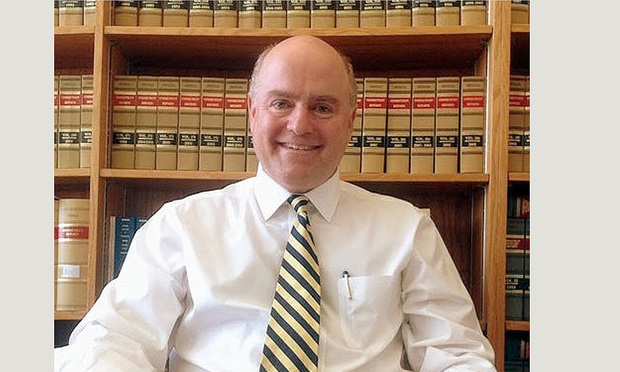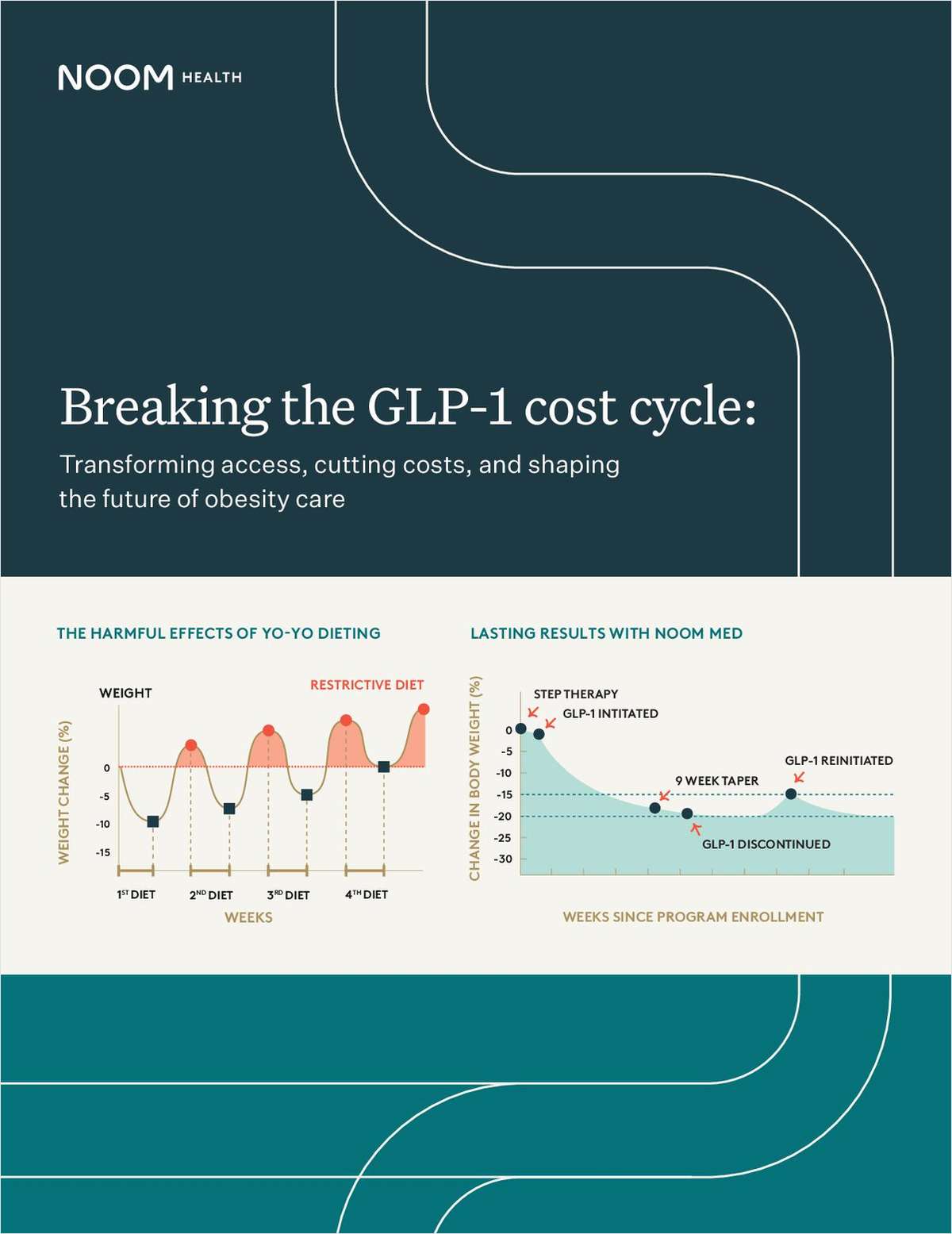5 Things to Know About Judge John Blawie, Who Heard Connecticut's Last Death Penalty Case
From Bernie Madoff to Sandy Hook school shooting proceedings, Superior Court Judge John Blawie has had an impactful career.
July 25, 2019 at 02:13 PM
4 minute read
 Superior Court Judge John Blawie. Courtesy photo.
Superior Court Judge John Blawie. Courtesy photo.
U.S. Attorney General William Barr announced Thursday he has directed the Federal Bureau of Prisons to adopt a proposed addendum to the federal execution protocol, which would clear the way for the federal government to resume capital punishment after a nearly two-decade lapse.
The news from Washington, D.C., might have a familiar ring to Superior Court Judge John Blawie, who five years ago handled the last death penalty case in the state before the Connecticut Supreme Court ruled capital punishment unconstitutional.
The Connecticut Law Tribune spoke to Blawie, currently a judge in the Norwalk-Stamford Judicial District, about his resume, years on the bench and his relationship with his father, who was a longtime Connecticut attorney.
Blawie's had a successful career as a lawyer and Superior Court judge. He handled complex cases as an attorney for the Division of Enforcement for the U.S. Securities & Exchange Commission, was in-house counsel for two companies, worked as a senior assistant state attorney for Connecticut's Economic Crime Unit, and then rose to become a Superior Court judge 15 years ago.
Here are five things to know about the judge:
He resentenced Richard Roszkowski
Blawie's resume is one of note. It includes the case of Richard Roszkowski, who Blawie had sentenced to death before the Connecticut Supreme Court ruled capital punishment unconstitutional.
Roszkowski was convicted of killing three people, including a mother and daughter, in Bridgeport. Blawie later had to resentence him to life without the possibility of release.
He presided over a Bernie Madoff case
Blawie was also the judge who handled several matters related to the town of Fairfield and the money-bilking scheme of Bernard Madoff. The town lost about $35 million in pension funds to the landmark Ponzi scheme, and Blawie handed down several rulings on whether it had a direct cause of action against feeder funds that invested with Madoff.
His pivotal role after Sandy Hook school shooting
Blawie also was the judge in Danbury Superior Court at the time of the 2012 Sandy Hook Elementary School massacre. He signed all the search warrants for authorities to go into the home of the shooter, Adam Lanza, and confiscate his computers, car and internet records.
He adjudicated high-profile chimpanzee case
Blawie also handled a case that made national news when a chimpanzee mauled Stamford woman Charla Nash. Blawie ruled it was a strict liability case because the animal was considered wild.
His father was an attorney
Blawie said his biggest influence, cheerleader and mentor was his father Paul, a well-known and respected attorney who was in private practice for about 45 years and founded Cohen and Wolf, which was originally named Blawie & Wolf.
Today, Blawie has fostered a reputation as a prepared and fair jurist. But the 61-year-old judge said his attributes can be traced to what his father taught him about life and the law.
“He had such a tremendous influence on me,” said Blawie, who grew up one of 12 siblings in Fairfield and Bridgeport. “I saw him as a force for good in the world. He was so larger than life, and he thought law was a noble profession.”
As the seventh of 12 children, Blawie said half-seriously, “I was schooled in conflict resolution.”
Blawie clerked for his father for two years while attending the University of Connecticut School of Law, where he graduated in 1983.
“I learned about law and the philosophy of law from him,” he said.
Blawie has two sons and a daughter and lives in Greenwich.
Blawie said he's most proud in his time on the bench of “helping a few people along the way.” That, Blawie said, means that not every person who pleads guilty, or is found guilty, needs to necessarily go to jail.
“First[-time] offenders come before the court and I have the discretion of giving diversionary programs for that first offender. Incarceration is not always the answer,” Blawie said. “We try to instill accountability.”
So, Blawie said, he might give a person whose crime was assault another chance in ordering attendance in a family violence education program, or someone convicted of an alcohol-related crime a chance to get his life back on track in participating in accelerated rehabilitation or an alcoholic education program.
Read More:
Connecticut's New Chief Justice Richard Robinson Talks About His Historic Rise
This content has been archived. It is available through our partners, LexisNexis® and Bloomberg Law.
To view this content, please continue to their sites.
Not a Lexis Subscriber?
Subscribe Now
Not a Bloomberg Law Subscriber?
Subscribe Now
NOT FOR REPRINT
© 2025 ALM Global, LLC, All Rights Reserved. Request academic re-use from www.copyright.com. All other uses, submit a request to [email protected]. For more information visit Asset & Logo Licensing.
You Might Like
View All
Connecticut Movers: New Hires at SkiberLaw, Verrill and Silver Golub & Teitell
3 minute read
Trending Stories
- 1Gunderson Dettmer Opens Atlanta Office With 3 Partners From Morris Manning
- 2Decision of the Day: Court Holds Accident with Post Driver Was 'Bizarre Occurrence,' Dismisses Action Brought Under Labor Law §240
- 3Judge Recommends Disbarment for Attorney Who Plotted to Hack Judge's Email, Phone
- 4Two Wilkinson Stekloff Associates Among Victims of DC Plane Crash
- 5Two More Victims Alleged in New Sean Combs Sex Trafficking Indictment
Who Got The Work
J. Brugh Lower of Gibbons has entered an appearance for industrial equipment supplier Devco Corporation in a pending trademark infringement lawsuit. The suit, accusing the defendant of selling knock-off Graco products, was filed Dec. 18 in New Jersey District Court by Rivkin Radler on behalf of Graco Inc. and Graco Minnesota. The case, assigned to U.S. District Judge Zahid N. Quraishi, is 3:24-cv-11294, Graco Inc. et al v. Devco Corporation.
Who Got The Work
Rebecca Maller-Stein and Kent A. Yalowitz of Arnold & Porter Kaye Scholer have entered their appearances for Hanaco Venture Capital and its executives, Lior Prosor and David Frankel, in a pending securities lawsuit. The action, filed on Dec. 24 in New York Southern District Court by Zell, Aron & Co. on behalf of Goldeneye Advisors, accuses the defendants of negligently and fraudulently managing the plaintiff's $1 million investment. The case, assigned to U.S. District Judge Vernon S. Broderick, is 1:24-cv-09918, Goldeneye Advisors, LLC v. Hanaco Venture Capital, Ltd. et al.
Who Got The Work
Attorneys from A&O Shearman has stepped in as defense counsel for Toronto-Dominion Bank and other defendants in a pending securities class action. The suit, filed Dec. 11 in New York Southern District Court by Bleichmar Fonti & Auld, accuses the defendants of concealing the bank's 'pervasive' deficiencies in regards to its compliance with the Bank Secrecy Act and the quality of its anti-money laundering controls. The case, assigned to U.S. District Judge Arun Subramanian, is 1:24-cv-09445, Gonzalez v. The Toronto-Dominion Bank et al.
Who Got The Work
Crown Castle International, a Pennsylvania company providing shared communications infrastructure, has turned to Luke D. Wolf of Gordon Rees Scully Mansukhani to fend off a pending breach-of-contract lawsuit. The court action, filed Nov. 25 in Michigan Eastern District Court by Hooper Hathaway PC on behalf of The Town Residences LLC, accuses Crown Castle of failing to transfer approximately $30,000 in utility payments from T-Mobile in breach of a roof-top lease and assignment agreement. The case, assigned to U.S. District Judge Susan K. Declercq, is 2:24-cv-13131, The Town Residences LLC v. T-Mobile US, Inc. et al.
Who Got The Work
Wilfred P. Coronato and Daniel M. Schwartz of McCarter & English have stepped in as defense counsel to Electrolux Home Products Inc. in a pending product liability lawsuit. The court action, filed Nov. 26 in New York Eastern District Court by Poulos Lopiccolo PC and Nagel Rice LLP on behalf of David Stern, alleges that the defendant's refrigerators’ drawers and shelving repeatedly break and fall apart within months after purchase. The case, assigned to U.S. District Judge Joan M. Azrack, is 2:24-cv-08204, Stern v. Electrolux Home Products, Inc.
Featured Firms
Law Offices of Gary Martin Hays & Associates, P.C.
(470) 294-1674
Law Offices of Mark E. Salomone
(857) 444-6468
Smith & Hassler
(713) 739-1250












